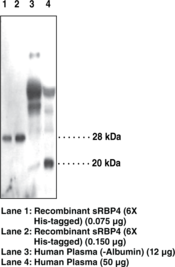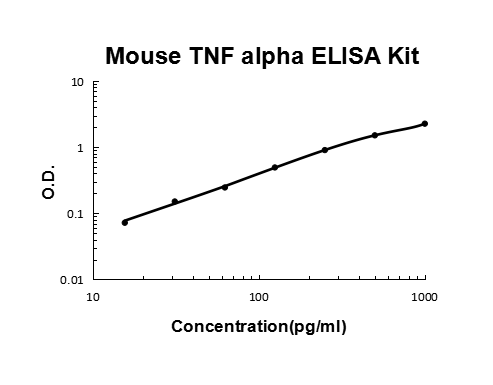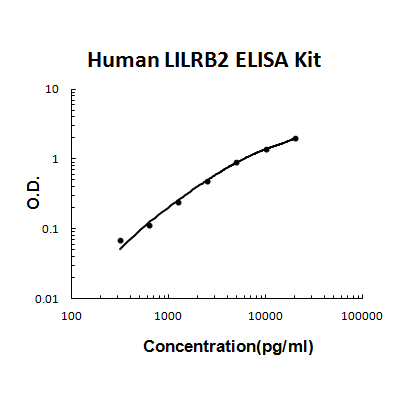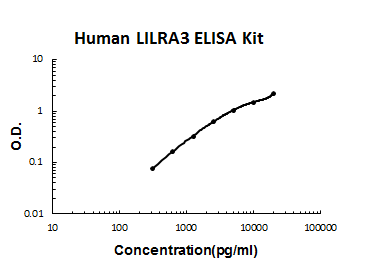Description
Antigen: human sRBP4 amino acids 28-37 (RVKENFDKAR) · Host: rabbit · Cross-reactivity: (+) human sRBP4; other species not tested · Application: WB • sRBP4 binds one equivalent of vitamin A and is one of the major retinol carriers found in the blood of mammals. It is an adipocyte-derived “signal” whose elevation causes systemic insulin resistance whereas reduction of serum concentrations improves insulin action. Thus, sRBP4 may contribute to the pathogenesis of type 2 diabetes.
Synonyms: Plasma Retinol Binding Protein 4|pRBP|sRBP4
Immunogen: human sRBP4 amino acids 28-37 (RVKENFDKAR)
Formulation: Peptide affinity-purified IgG
Isotype:
Applications: WB
Origin: Animal/Rabbit
Stability: 365 days
Application|Western Blot||Product Type|Antibodies|Polyclonal Antibodies||Research Area|Endocrinology & Metabolism|Metabolic Diseases|Diabetes||Research Area|Endocrinology & Metabolism|Metabolic Diseases|Obesity




